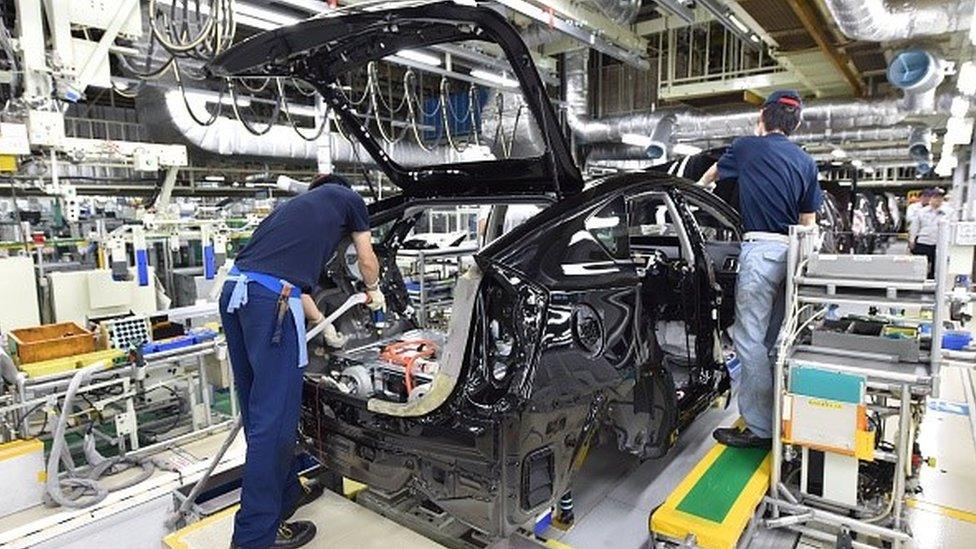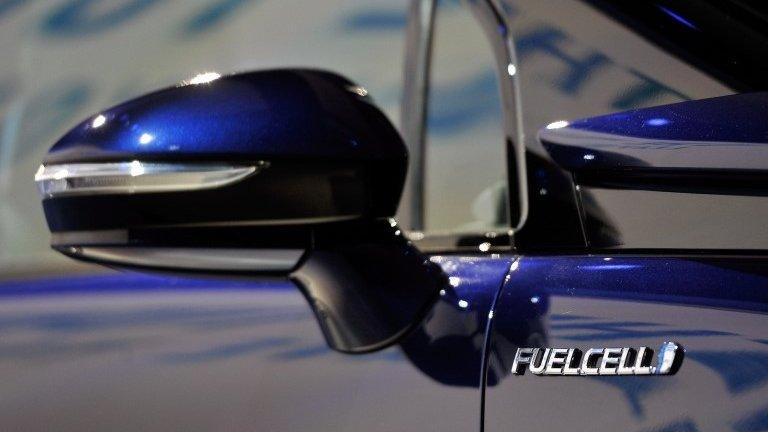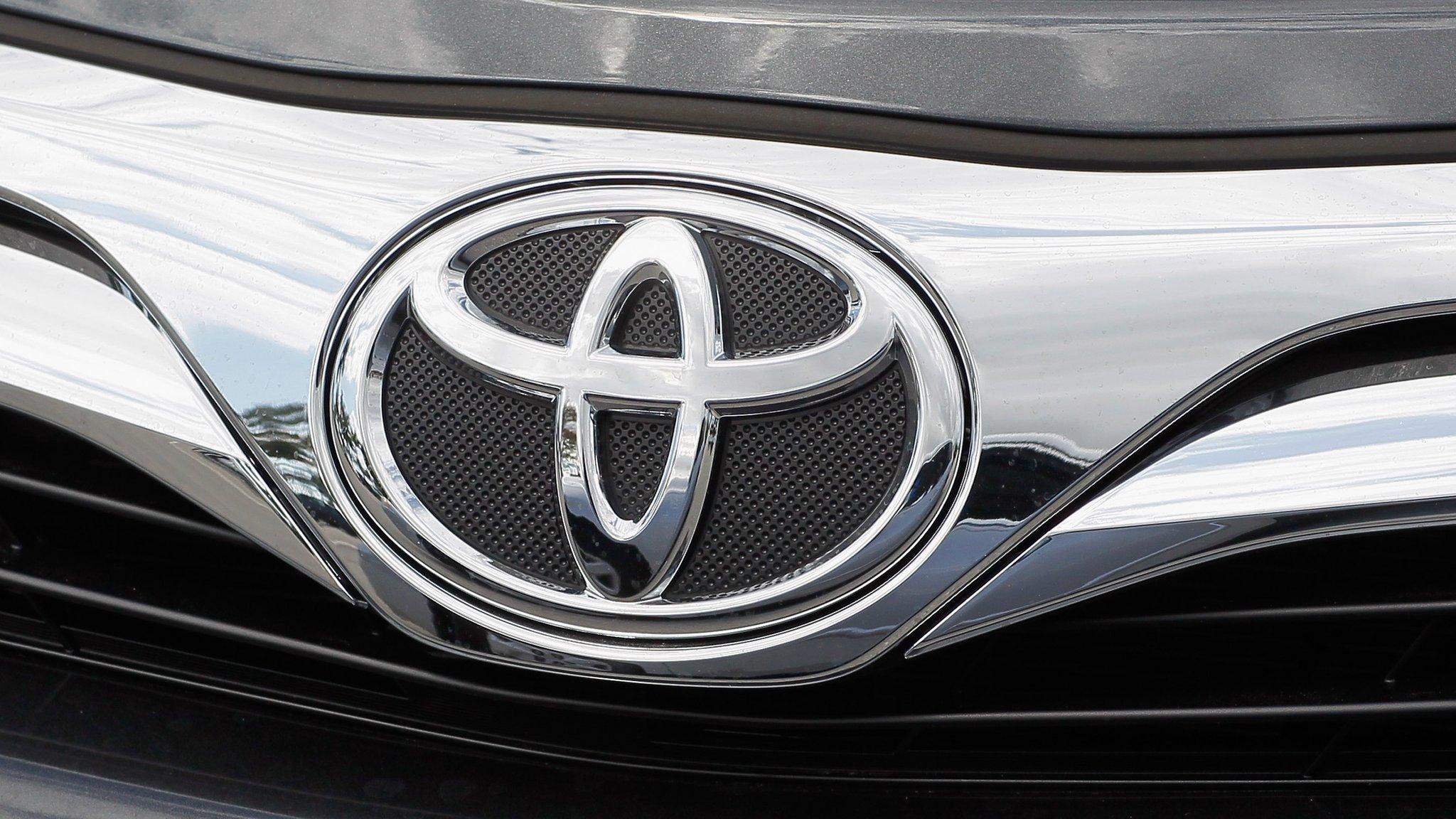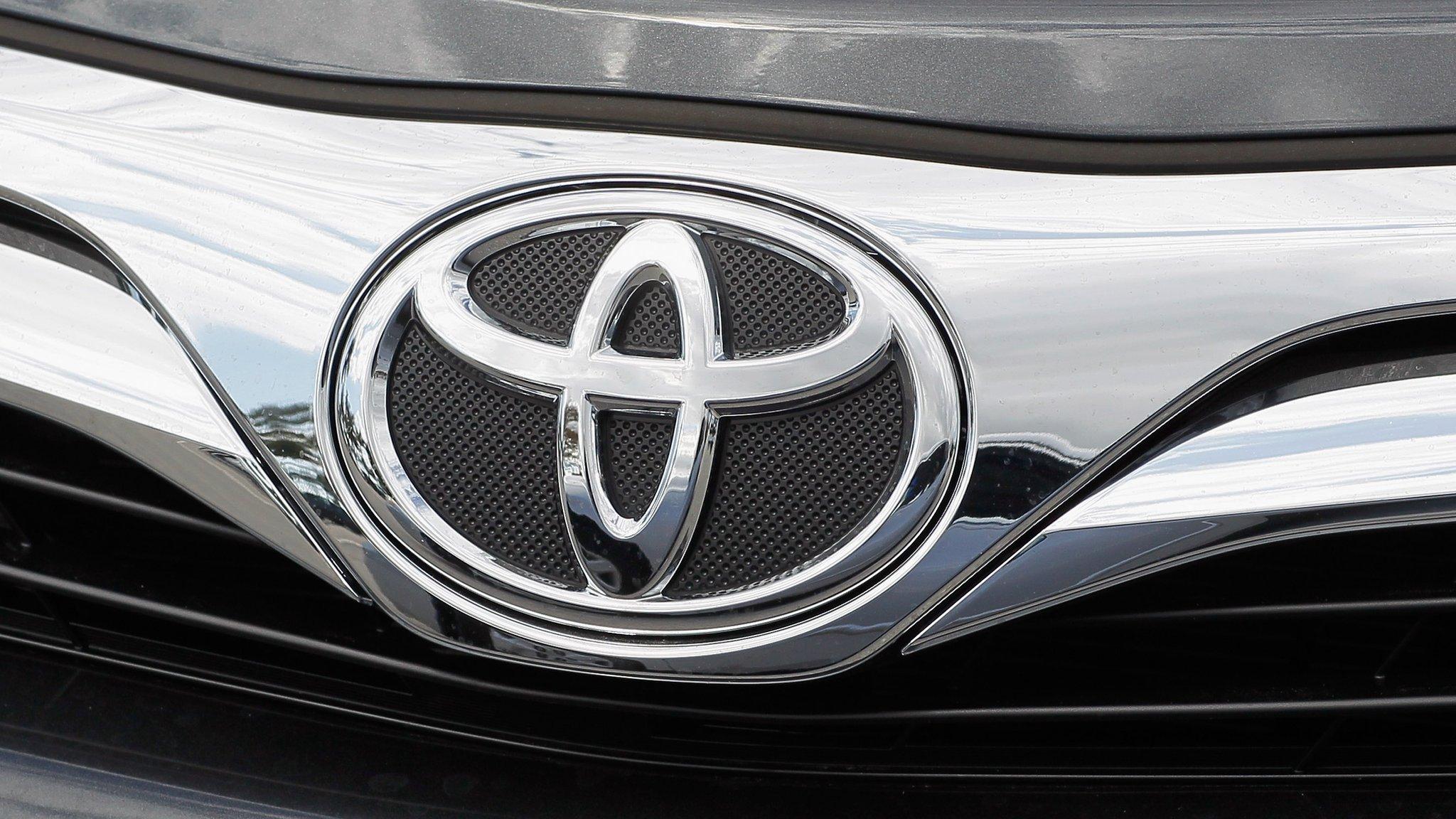Toyota plans to all but stop making carbon emitting cars by 2050
- Published

Japanese car manufacturing giant Toyota is committing to all but eliminate carbon emissions from its production processes by 2050.
The target is one of several set by Toyota, which also pledged to sell 1.5 million hybrid cars a year by 2020.
Toyota said it will increase the use of renewable energy and hydrogen-based production methods at its factories.
Separately it said it plans to sell more than 30,000 hydrogen fuel-cell vehicles around or shortly after 2020.
Unveiling new environmental targets Toyota confirmed that its new Prius hybrid would be a fifth more fuel-efficient than its predecessor as the car manufacturer hopes to boost flagging sales of the environmentally friendly model amid a slump in global oil prices.
Toyota said it planned to reduce average emissions from its cars by 90% by 2050 compared with 2010 levels.
However, Toyota's plans did not include any commitment to manufacturing electric cars.
The strategy outlined earlier on Wednesday came as Volkswagen said it would cut investment at its biggest division by €1bn (£743m) a year from 2019 and increase development of electric vehicles.
The German company said on Tuesday it would speed up cost cutting at its VW division and put only the latest and "best environmental technology" in diesel vehicles.
Volkswagen is facing the biggest crisis in its 78-year history after admitting last month it installed software in diesel vehicles that could deceive US environmental regulators about the true level of their toxic emissions.
- Published6 January 2015

- Published15 July 2015

- Published4 August 2015
